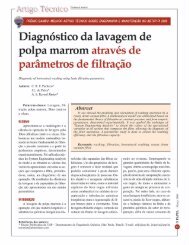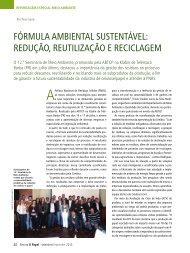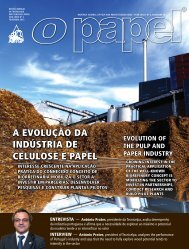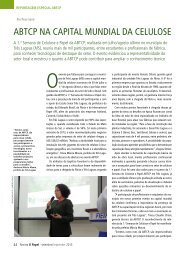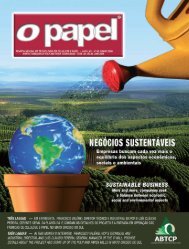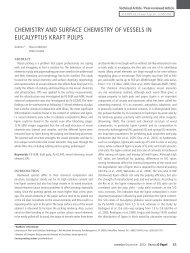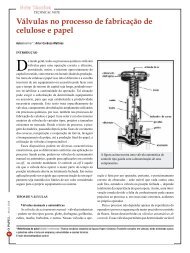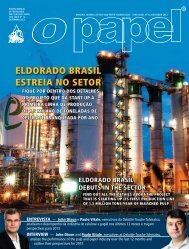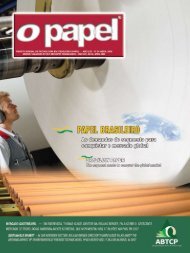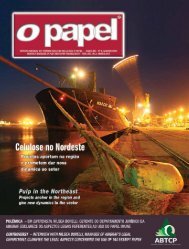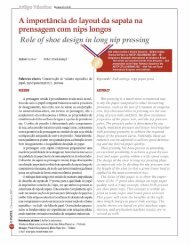international article - Revista O Papel
international article - Revista O Papel
international article - Revista O Papel
Create successful ePaper yourself
Turn your PDF publications into a flip-book with our unique Google optimized e-Paper software.
22O PAPEL - Outubro 2009CADERNO BRACELPA<br />
reach will be increased”, states Carlos Aguiar. “We understand<br />
that at first there may be an argument for the European Union to<br />
restrict forest credits. But with the development of post-Kyoto<br />
mechanisms, the CDM will be more far-reaching and less restrictive<br />
so that commerce may occur and contribute amongst<br />
different initiatives to compensate and reduce emissions. The<br />
challenge we have ahead of us is so big that, in order to be<br />
successful, we will need to let go of all available instruments,<br />
from the regulatory ones to those of the market. The CDM is<br />
one of the most important ones”, adds Aguiar.<br />
According to Fernando Fonseca, the expectation is that<br />
planted forests be positively promoted during the negotiations:<br />
“With this involvement, we will show the world the pulp and<br />
paper industry’s sustainable production conditions”, he says.<br />
“The pulp and paper sector’s planted forests are the most<br />
productive and sustainable in the world, absorbing over 63<br />
million tons of carbon per year”, quotes Elizabeth, basing<br />
herself on Bracelpa’s data.<br />
Poernbacher agrees that the sector is qualified to participate<br />
in COP-15 negotiations, offering effective solutions<br />
to contain the effects of climate change: “In fact, planted<br />
forests trap carbon in a permanent way, until the formation<br />
of its dynamic stock”, he says. However, on a less optimistic<br />
note, he does not believe that planted forests for competitive<br />
sectors will be included in the scope of the MCD. “It may<br />
be accepted, for example, in the production of liquid fuel, as<br />
long as there is no competing technology for this”, he says.<br />
“We know that the challenge is huge, and that is why the<br />
sector will make its presence felt at the COP-15 every single<br />
day, accompanying the Brazilian government’s negotiations<br />
and showing participants the benefits of planted forests”, adds<br />
Elizabeth de Carvalhaes.<br />
Executives need to evaluate the risks involved in the<br />
negotiations. “The setting of targets for the reduction of<br />
emissions according to the ‘average’ could limit our growth,<br />
considering that the sector in Brazil has evolved a lot and has<br />
low emissions levels”, highlights Klabin’s general director.<br />
According to him, the technology involved in the planting,<br />
management and harvest of forests in tropical and adjacent<br />
regions is not well-understood by developed countries. “This<br />
may lead to restrictions in the sector”, he says.<br />
According to Aguiar, the emergence of a new economy<br />
based on climate issues is inevitable: “There will be winners<br />
and losers, as is to be expected in any major economic<br />
transformation”, he says. “In this, the pulp and paper<br />
sector has the opportunity to secure a significant position<br />
in the new economy, because it deals with renewable<br />
natural resources that absorb and recycle carbon. The<br />
main thing is for the sector to position itself in a cooperative<br />
and constructive way along with other social sectors<br />
looking for a solution to a problem that will affect all of<br />
humanity”, he concludes.



